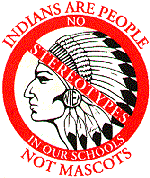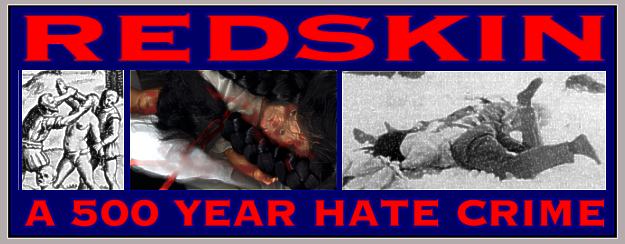- Anthro 107 Prof. Varisco
- Spring
2001
|
INDIGENOUS
PEOPLES AND DEVELOPMENT
WEB
SITES
|
Need Help? E-mail me at
socdmv@hofstra.edu

- Late-Breaking News
(3/26/01)
-
- Check out slick new site on
the AUCA: Beyond the Gates of Splendor http://www.beyondthegatesthemovie.com/default.htm
-
- Check out the site of
Schlegel: Wisdom from a Rainforest: The Spiritual
Journey of an Anthropologist Web Site http://www.rainforestwisdom.com/index.html
-
Web Critique for A107
Students
-
- BACKGROUND: The guidelines for
your A107 Web Critique are given below. You must write a report of
about 4 pages, WHICH IS DUE NO LATER THAN May 9 (last
official day of class). You may hand in or e-mail to me a draft at
any time for comments without a grade. I will try to return
my comments by the next class period.
-
- In doing this critique, keep in mind the
following points:
-
- • What can you learn about the
person or group that put the site together? Are the names of
the writers or creators indicated and do they solicit feedback?
Are you able to tell if it is a reputable person or mainstream
organization?
-
- • Who is the site directed to?
Is it trying to convert you to an idea? Do you think it has a
commercial interest (trying to get money from you)?
-
- • What do you find the most
useful aspect of the site? How user-friendly is it?
-
- • From your perspective, do you
find any bias, misleading or erroneous information on the site?
Find information that contradicts or confirms what you have
learned in class. If so, what is the response of the site
webmasters if you are able to send your comments or
criticism?
-
- • Find something specific on
the site that relates to the course material or discussion.
Discuss what you find and relate it directly to examples
from the course or class discussion.
GRADING: 6 points
- level of
effort
- (1) adequate (2)
impressive
- relates material to class
readings, films and lectures
- (1) adequate (2)
impressive
- critical assessment of site
and its content
- (1) adequate (2) impressive
-
- DIRECTIONS for
Critique:
- NOTE: Look at "Techniques
for Evaluating American Indian Web Sites" http://www.u.arizona.edu/~ecubbins/webcrit.html
before you do
this assignment.
-
Complete all three parts of the
critique, keeping in mind the points mentioned
above.
-
- 1. Select one of the options (A, B or C)
from the list below and relate each pair of sites to the course
material. You are encouraged to look at all the sites in this
section and then pick the pair you are most interested
in.
-
- A. After looking at both of these
websites, what do you think of the views expressed. Why
are the authors so upset?
- • End Federal Trademarks on
all racial group names! http://www.JerryDJ.com/wahoo.html
- • Indian Motorcyle
Issue http://www.indiantrademark.com/
-
- B. Look at the first site to learn
about Rigoberta Menchu. Then read the critique by D'Souza.
What do you see going on in these two sites and how do they
influence your views about Rigoberta Menchu?
- • Homage to/Homenaje a Rigoberta Menchú
Tum, Quiche Mayan http://www.indians.org/welker/menchu.htm
- • Fraudulent
Storyteller Still Praised [Dinesh
D'Souza]
http://www.boundless.org/1999/departments/isms/a0000074.html
-
- C. Both of the sites below are by
Native Americans. What differences do you notice in the two
sites? What is your reaction to their points of
view?
- METHODIST CHURCH DECLARES CHIEF
WAHOO WILL CONTINUE THEIR MISSION TO THE INDIANS
http://www.iwchildren.org/methwaho.htm
- • Amerindian Philosophy by
an Amerindian
http://www.geocities.com/Athens/Forum/6558/Philo.html
-
-
- 2. Select two home pages of
indigenous peoples below. You are encouraged to look at all the
sites and then pick the pair you are most interested in. The
idea is to indicate how these sites help you better understand
the "indigenous" perspective. Find something in each of the
sites you can relate to the course readings or
films.
- • First
Nations
http://firstnations.com/
- • Grand Council of the
Crees http://www.gcc.ca/index.htm
(e-mail the chief!)
- • Mapuche
Inter-regional Council http://members.aol.com/mapulink/
- • The Mayan Connection
http://www.livezone.com/maya/index.html
- • Seneca (New
York) http://www.sni.org/
- • Seminole Tribe of
Florida http://www.seminoletribe.com/
-
- 3. Check out home pages of
missionaries to the Philippines or elsewhere on the web.
Examine any two of the following sites and explain
what you think about the missionary work
based on your reading of Schlegel's book and the class
materials.
-
- • Chris B. McKinney
(missionary in Philippinesx) http://chris.mckinney.net/
- • Indigenous Mission
Winning Souls and Planting Churches in the Rural Areas of
the Philippines http://www.christianaid.ca/wrld_news/spotlight/801fre.htm
- • Mike and Cindy Gingerich
(missionaries to Philippines) http://members.truepath.com/missionary/
- • Philippines Manila
Mission (Mormon)
http://www.inficad.com/~csnorjsn/
- • STEVE AND KAY ABELMAN
(Philippines, Baptist) http://www.bgcworld.org/cplantin/mindxtst.htm
- [Note:the web address changed,
so you need to go to this page and then select from several
options under the "Ablemans" Look at the Close-Up and their
Missionary letter at a minimum, but you should consider the
"home" site as well.]
- New Tribes Mission in Indonesia
Doug Berglund Ministry http://berglund.webjump.com/
-

-
-
INDIGENOUS PEOPLES
|
General
Sites on Indigenous Peoples
|
General
Amazon Groups
Canada, Alaska
and Northwest
Caribbean:
Taino, Arawak, Kuna
Eastern
Woodland (Mohawk, Mohican, Iroquois, Pequot, etc)
Mayan Natives
(Guatemala, Mexico, etc.)
Plains Indians
(Lakota Sioux, Cheyenne, etc.)
- Southwest
-
- General
- Australian
Aborigines
- East Timor
-
- Hawaii
- Hmong
-
- Maori
- Pacific
Peoples
- Philippines
-
TOPICS
-
- Activism Sites
- Agricultural
Development
- Anthropology
Links
- Bible Translation
Groups
- Casinos and
Gaming
- Columbus and
Discovery
- Development
- Development
Anthropology
- Development Organizations
- Environment and
Biodiversity
- Folklore
Government
Organizations
- Human Rights
Hydroelectric Projects
and Relocation
- Indigenous
Knowledge
Intellectural Property Rights
Language
-
- Literature
Medicine
Missionary Impact:
Philippines
Missionary
Impact
- Missionary Impact: "Auca"
(Waorani)
Missionary
Organizations
- Music and Dance
- Omaha Indian Music
http://memory.loc.gov/ammem/omhhtml/omhhome.html
Native Rights
Organizations
Religion and
Myth
Rhino Conservation
Stereotypes
- Tourism
- Trade
- Wounded Knee
-
-




